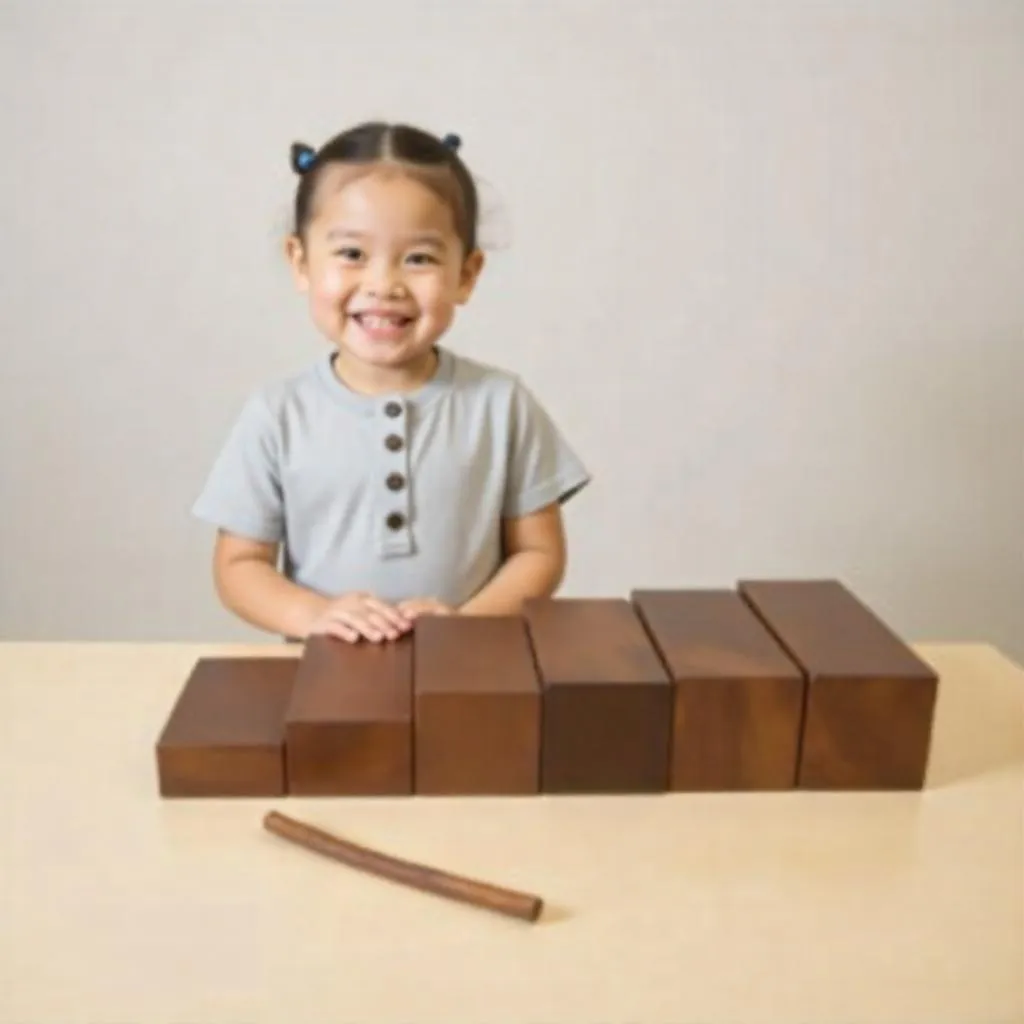A Montessori Day: Calm, Curious, Connected
A Montessori Day: Calm, Curious, Connected
Every parent or #educator curious about Montessori education inevitably wonders: What does a typical day in a Montessori #preschool actually look like? The answer is both structured and beautifully fluid, designed to support independence, concentration, and a love for learning in young children.
Let’s walk through a typical day in a Montessori preschool #classroom and explore how each moment contributes to a child’s holistic #development.
Arrival and Greeting (8:00–8:30 AM)
The day begins with a warm and calm arrival. Children are greeted by their #teachers—often called guides in the Montessori environment—with a handshake and eye contact. This personal connection helps the child transition into the school day with intention and respect.
Children hang up their belongings independently and begin the day with a sense of ownership and responsibility—core values of the Montessori method.
The Morning Work Cycle (8:30–11:30 AM)
This uninterrupted three-hour work period is the heart of the Montessori day. Children choose activities based on their interests and #developmental stage. Materials are carefully prepared and dis #played on open shelves, inviting exploration and focus.
Activities during this time include:
-
Practical Life Exercises: Pouring, buttoning, sweeping—activities that build coordination and independence.
-
Sensorial Work: Exploring shapes, textures, sounds, and smells to refine the senses.
-
Language and Literacy: Letter sounds, movable alphabets, and pre-reading activities.
-
Mathematics: Hands-on learning with golden beads, number rods, and spindle boxes.
-
Cultural Studies: Geography, biology, art, and music that connect the child to the wider world.
During this period, the teacher observes and gives individual or small-group lessons. There are no bells, transitions, or interruptions—children work deeply, and at their own pace.
Want to deepen your understanding of how to guide these activities? Explore our Montessori Curriculum and Lesson Planning Course for expert training on implementing each learning area with precision.
Snack and Outdoor Play (11:30 AM–12:15 PM)
Children are offered a #healthy snack, often self-served at a snack table, continuing the theme of independence. Afterward, they head #outdoors to run, climb, dig, and explore. Nature is an extension of the classroom in Montessori education, offering #freedom and movement essential to a young child’s development.
Lunch and Quiet Time (12:15–1:30 PM)
In a Montessori preschool, lunch is a social experience where children practice table manners and clean up after themselves. Some programs invite children to help set the table and serve one another, further building practical life skills.
After lunch, children rest or nap, depending on their needs. Older #preschoolers may engage in quiet work, reading, or journaling during this time.
Afternoon Work and Enrichment (1:30–3:00 PM)
Afternoons vary by program but often include continued work time, art, music, or enrichment lessons like Spanish or gardening. Because the Montessori method honors each child's internal clock, children who are most focused in the afternoon may choose to tackle more complex lessons during this time.
Interested in learning how to #lead specialized enrichment activities the Montessori way? Check out our Enrichment Extensions and Cultural Curriculum Course to expand your toolkit.
Closing Circle and Dismissal (3:00–3:30 PM)
The day concludes with a short circle time. Children might share what they learned, sing songs, or read a story together. This provides closure to the day and an opportunity for community building.
As children are dismissed, they’re often more calm, self-assured, and joyful than when they arrived—testament to the nurturing power of a Montessori environment.
Final Thoughts
A Montessori preschool day is not rushed or chaotic—it flows. Each component is thoughtfully designed to support the whole child—socially, emotionally, cognitively, and physically. The result? Confident, curious learners who view education as a joyful journey.
If you're a teacher or aspiring Montessori guide ready to bring this beauty into your own classroom, we invite you to explore our online professional development options at montessori4teachers.com/courses. Whether you're just starting out or deepening your practice, our self-paced and expert-led courses will empower you with the tools and mindset to transform #early-childhood education.
- Raising Peaceful Learners: The Montessori Advantage
- Engaging Parents in the Montessori Toddler Classroom
- Intro to Montessori: Philosophy, Principles, and Practices
- Teach the Montessori Way: A Practical Guide
- Authentic Montessori in Action
- The Montessori Classroom: Theory to Practice
- Montessori Assistant Training
- Montessori vs. Traditional Education: Key Differences and Benefits
- Teaching Methodology and Classroom Environment in Montessori Education
- Montessori for Infants: Nurturing Independence from the Start
- A Montessori Day: Calm, Curious, Connected
- Teaching Empathy and Conflict Resolution the Montessori Way
- Raising the Montessori Way: A Family Win
- 🍂 What Makes September So Special in Montessori? 🍎
- What Do Parents Need to Know About Freedom Within Limits?
- How to Support Sibling Relationships the Montessori Way
- 🌞 What If Every Day Felt Peaceful? A Montessori Rhythm for Home
- 🕊 Why Are Montessori Classrooms a Model for Peace Education?
- Who Is The Quiet Hero Behind Every Peaceful Classroom?
- Could the Montessori Approach Be Your Child-Care Superpower?
- Top 10 Things You’ll Only Understand If You’re a Montessori Teacher
- Why Montessori Training Benefits Child Care Professionals
- Partnering With Families in Montessori: Care Courses Methods for Strong Communication
- What Are Montessori Practices, and Why Do They Work in Child Care Programs?
